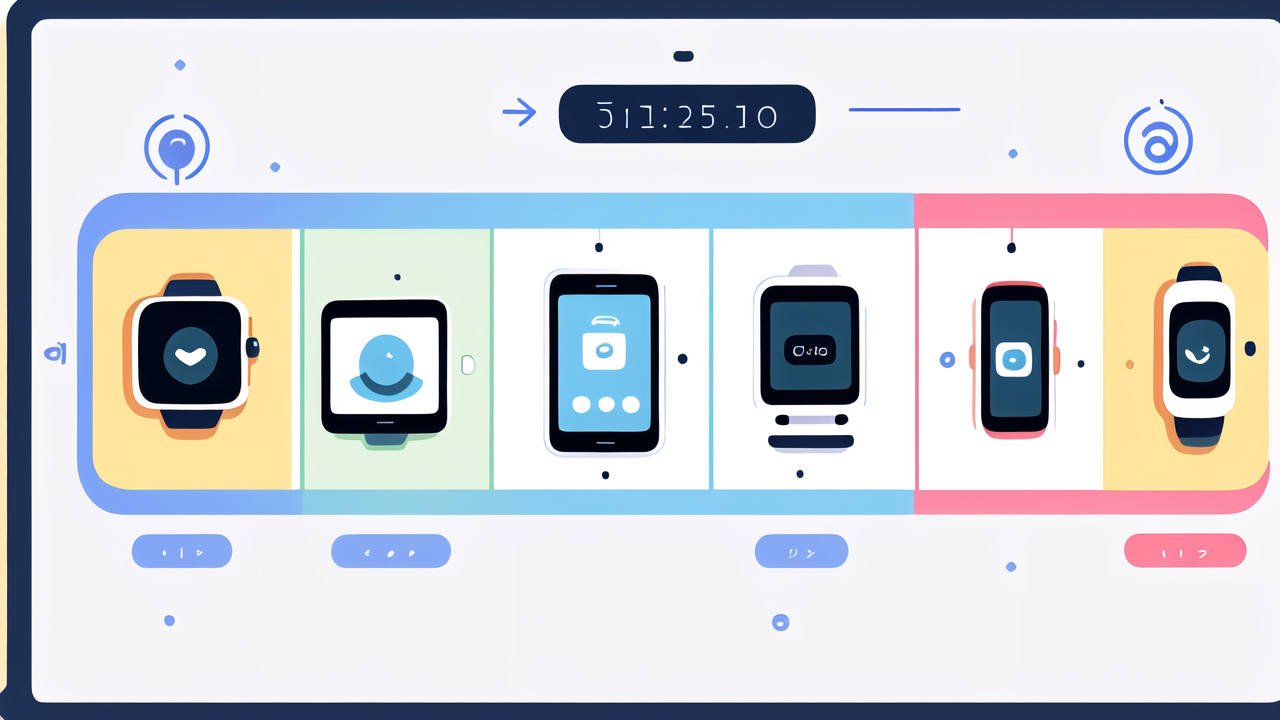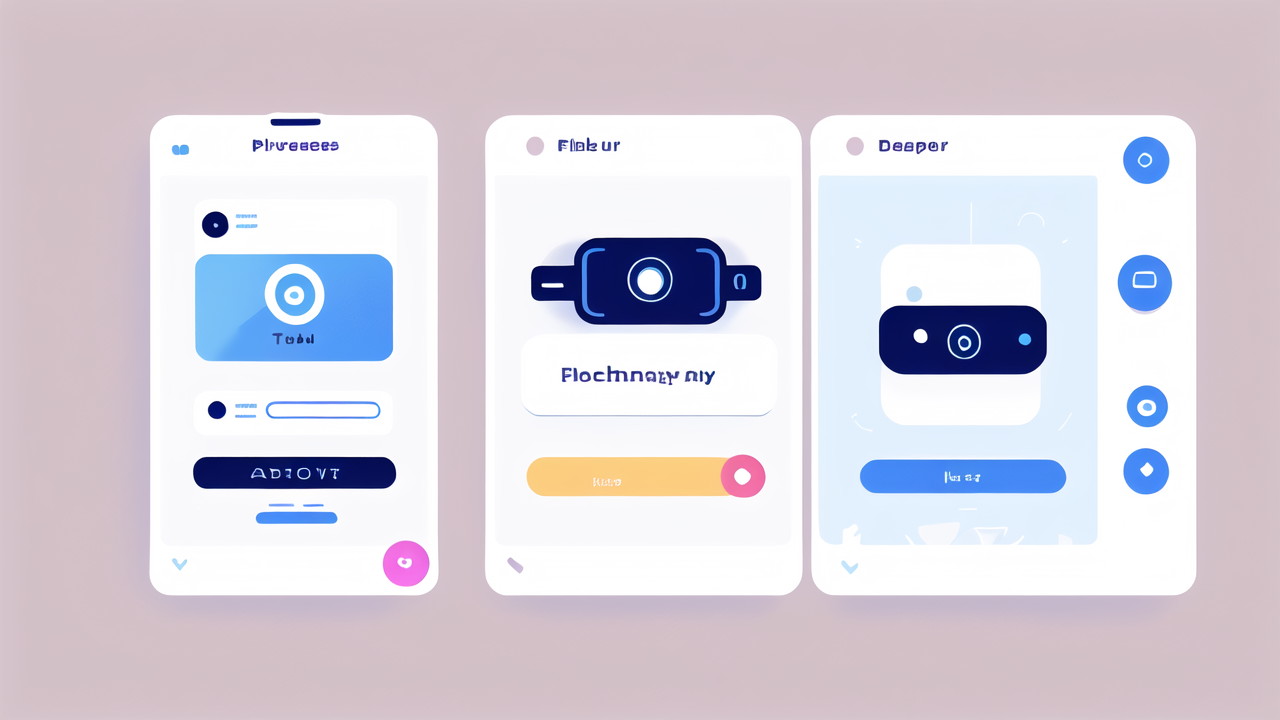The Rise of Smart Watches in the United States: A Market Overview
Understanding the Growth of the Smart Watch Industry
Smart watches have come a long way since their inception. They've evolved from simple time-telling devices to advanced wearables. The US market has seen rapid growth in recent years. This is due to increased consumer interest in health tracking and convenience.

Several factors have contributed to this growth:
- Improved technology
- Better design and aesthetics
- Integration with smartphones
- Focus on health and fitness features
The smart watch industry has shown steady growth year after year. Sales have increased as more people recognize the benefits of these devices. They offer a blend of functionality and style that appeals to a wide range of consumers.
Key Players and Innovators in the US Market
The US smart watch market is dominated by a few major players. These companies have been at the forefront of innovation and design. They continue to push the boundaries of what smart watches can do.
Some of the key players include:
- Apple: Known for its Apple Watch series
- Samsung: Offers the Galaxy Watch line
- Fitbit: Focuses on fitness-oriented smart watches
- Garmin: Popular among athletes and outdoor enthusiasts
These companies have introduced features like ECG monitoring, sleep tracking, and GPS. They've also improved battery life and added more robust health tracking capabilities.
Innovation is key in this competitive market. Companies are constantly working on new features to stand out. This has led to rapid advancements in smart watch technology over the past few years.
Technological Advancements in Smart Watches
Cutting-Edge Features in Modern Smartwatches
Modern smart watches are packed with advanced features. They go far beyond simple time-telling and notifications. Today's devices offer a wide range of functions that make them truly smart.

Some cutting-edge features include:
- ECG monitoring: Tracks heart rhythm and can detect irregularities
- Blood oxygen monitoring: Measures oxygen saturation levels in the blood
- Fall detection: Can alert emergency services if a fall is detected
- Stress tracking: Uses heart rate variability to measure stress levels
- Voice assistants: Allows for hands-free control and information access
These features make smart watches powerful health and productivity tools. They can help users monitor their well-being and stay connected on the go.
Many smart watches now also offer advanced fitness tracking. This includes GPS for accurate route tracking and workout analysis. Some even offer coaching features to help users improve their performance.
How Wearable Technology is Revolutionizing Health and Fitness
Wearable technology, especially smart watches, is changing how we approach health and fitness. These devices provide constant, real-time data about our bodies and activities.
Smart watches can track:
- Steps taken
- Calories burned
- Heart rate
- Sleep patterns
- Workout intensity
This data helps users make informed decisions about their health. It can motivate people to be more active and mindful of their habits.
Many smart watches now offer personalized insights based on collected data. They can suggest ways to improve sleep, increase activity, or manage stress.
Some devices even integrate with healthcare systems. This allows for sharing data with doctors for better health management. It's a powerful tool for preventive care and chronic disease management.
The Future of Smart Watches: Trends and Predictions
The Integration of AI and Machine Learning
The future of smart watches is closely tied to AI and machine learning. These technologies will make smart watches even smarter and more personalized.

AI can analyze vast amounts of data collected by smart watches. This can lead to more accurate health predictions and personalized recommendations.
Some potential applications include:
- Early disease detection based on subtle changes in vital signs
- Personalized workout plans that adapt to user progress
- More accurate sleep analysis and improvement suggestions
- Stress management techniques tailored to individual triggers
Machine learning algorithms can also improve the accuracy of fitness tracking. They can learn to recognize different types of activities and movements more precisely.
As AI and ML advance, smart watches will become more proactive. They might suggest taking a break when stress levels are high or remind users to move after long periods of inactivity.
The Role of Smart Watches in Consumer IoT Ecosystems
Smart watches are becoming central to consumer IoT (Internet of Things) ecosystems. They act as a hub for various connected devices and services.
In the future, we can expect smart watches to:
- Control smart home devices more seamlessly
- Integrate with car systems for keyless entry and control
- Connect with health devices for comprehensive health monitoring
- Act as digital wallets and identity verification tools
- Provide more advanced navigation and location-based services
As IoT expands, smart watches will likely play a bigger role in our daily lives. They could become the primary interface for many of our digital interactions.
The integration with other IoT devices will make smart watches even more valuable. They'll offer a convenient way to control and monitor various aspects of our lives.
In conclusion, smart watches have evolved from simple time-telling devices to advanced health and fitness trackers. They now play a crucial role in personal health management and connectivity. With ongoing advancements in AI, ML, and IoT, the future of smart watches looks promising. They are set to become even more integral to our daily lives, offering personalized insights and seamless integration with other technologies.




Leave a comment
This site is protected by hCaptcha and the hCaptcha Privacy Policy and Terms of Service apply.